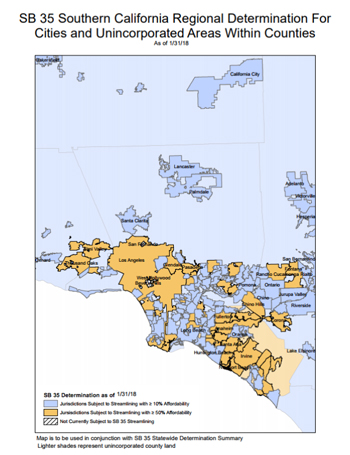Los Angeles is among more than 500 California municipalities that have failed to approve adequate housing to meet local needs, according to a new report.
The report by the state Department of Housing and Community Development found that just 13 of 539 local jurisdictions approved enough housing. Those locations will be required to expedite new projects that incorporate affordable units.
In LA, developers can get streamlined approvals for residential projects if they set aside half of the units for low-income residents. The announcement was made Thursday, when Housing and Community Development released its housing progress report, according to the Los Angeles Daily News.
Los Angeles is one of the most expensive places to live in the country, and according to one recent UCLA study, the most unaffordable in terms of the ratio of home prices to household incomes.
West Hollywood was among the 13 jurisdictions that had sufficient affordable housing.
The median home price across Southern California rose close to 9 percent in November — compared to the same period in 2016 — to an all-time-high of $505,000.
Across California, developers with projects in 378 other jurisdictions can receive streamlined approvals if they set aside a far smaller number of their units than 50 percent, in some cases just 10 percent. That is part of a statewide measure that took effect January 1. The number of units to be set aside depends on the state’s determination of local need.
Part of Senate Bill 35, the legislation was among the 15 bills in a housing package signed into law by Governor Jerry Brown last year, but experts say 2018 could bring even more. — Dennis Lynch

